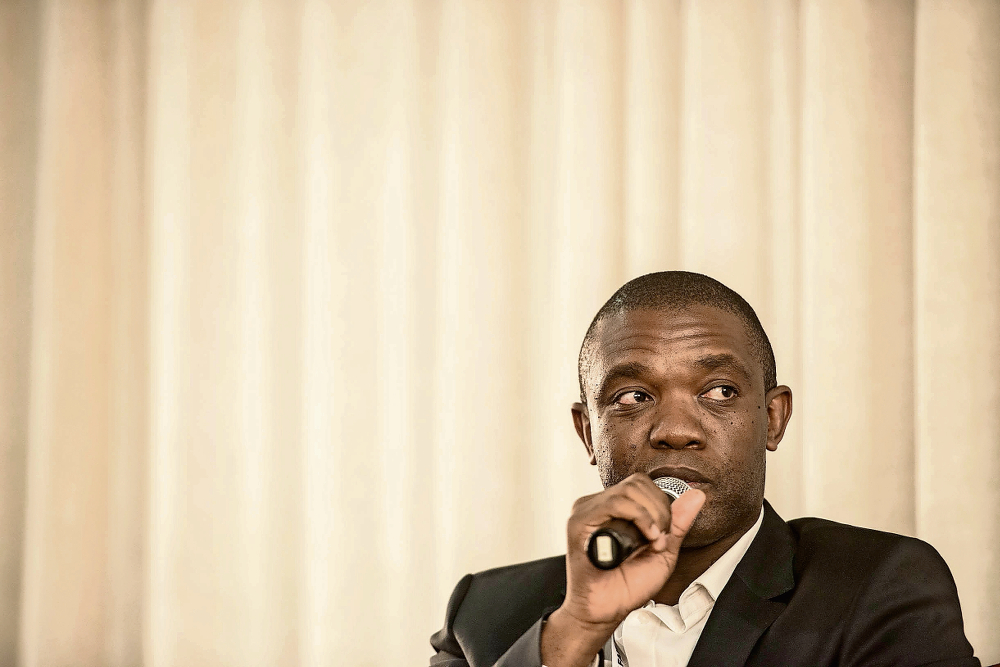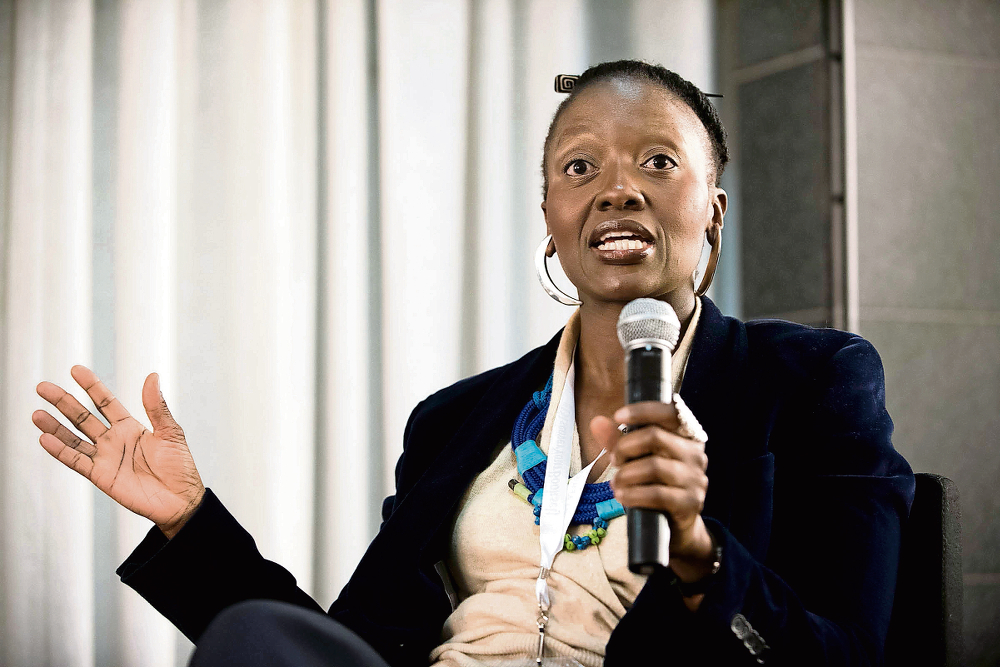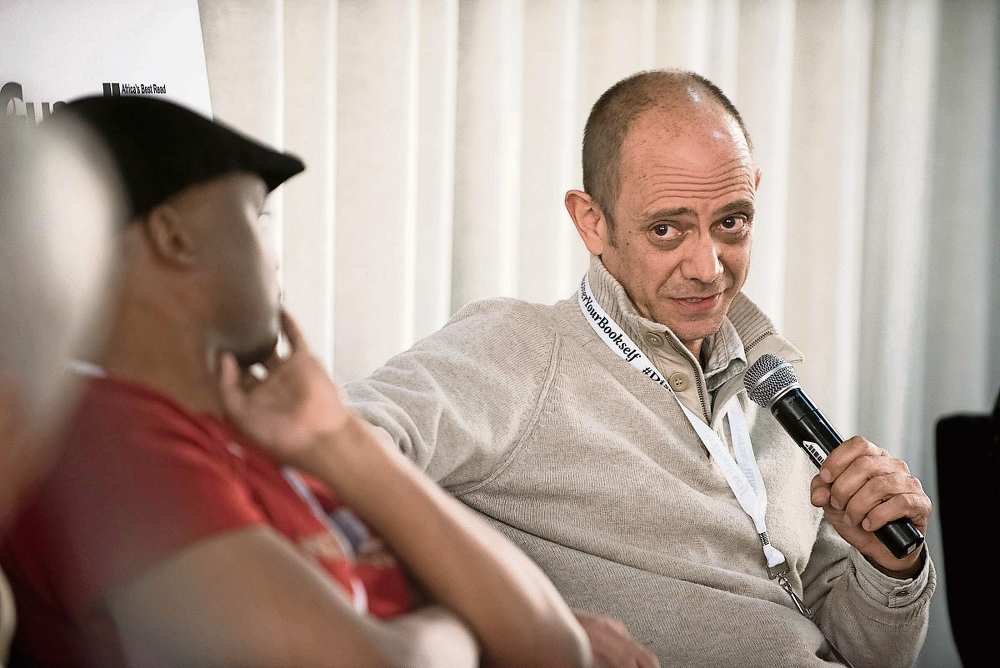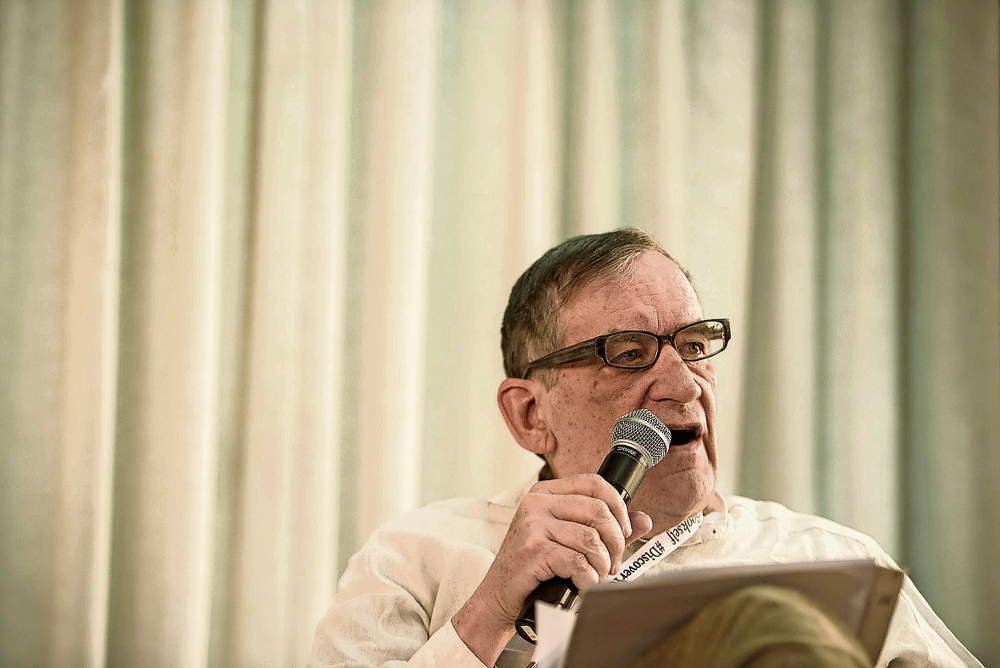Scientist Stefan Hell
That was the M&G Literary Festival, that was: Two days and eight sessions of fluency, knowledge, wit, barbs, bitterness, wisdom, anger, humour, theory, emotion, high academe, celebration, gloom, lived experience and words.
Views arrowed out on subjects ranging from decolonising culture and institutions, the economy and political economy to race, publishers’ problems, Jo’burg’s challenges, postapartheid fiction and our political present and memorialised past. So much to quote, so little space. Here are some of the most telling words.
Achille Mbembe on why constitutional democracy is running out of steam: “There are culturalist explanations, like Nkandla. There are technical explanations. The third reason is that we have divorced the political from the cultural. Liberation meant living like white people. All we wanted all along was to live like them … Poverty of imagination is not an accident. The project of apartheid was designed to do that as well.”
Songezo Zibi, chair of the session It’s the Economy, Stupid!: “So, it’s not the economy, stupid, it’s the politics, stupid!”

Songezo Zibi
John Saul, during the South Africa at a Fork in the Road session: “Whenever you are faced with a choice at a fork in the road, veer left!”
Fourie Botha, Umuzi’s publisher: “It’s unbelievably depressing. Books [fiction] are not selling. I’m struggling to sell a thousand copies of an English South African author who is well known. It’s heartbreaking. We need to sell 2 000 for it to work.”
David Robbins of Porcupine Press: “Self-publishing is ideally suited to make and sustain a grass-roots literary culture in a postcolonial society like South Africa … we do not deal in rejection.”
Lewis R Gordon, on Black and White in Colour: Why Race (Still) Matters: “South Africa is a black anti-black racist state … with privatisation of political power.”
And Hlonipha Mokoena had this to say during the same session: “Race is a distraction from all the other things that black people should be writing about … We are trying to overcome our history. History will leave us hurt, history is not done with us. Our reckoning with history is coming towards us.”

Hlonipha Mokoena
Mandla Langa, on The South African Novel at 21: “The South African novel should go into areas the social sciences don’t. South Africa is not what it thinks it is. We need to go back into South African history to find out ‘Why are we so fucked up?’.”
Henrietta Rose-Innes said of the South African novel: “The South African diasporic experience is no less a South African experience – there’s loss, pity … you can’t socially engineer South African stories.”
In the same session Damon Galgut said: “We’ve not been allowed to understand our history until very recently … we’re bound by our history but how do we break free? In theory it’s easy; in practice we are still bound by the past … In writing Arctic Summer I could free myself from expectations of politics and nationalism.”
Ivan Vladislavic said: “What distinguishes the novel is a particular use of language. If you’re looking just for an account, nonfiction will do.”

Damon Galgut
Galgut again: “Fiction has never been as beleaguered as it is now. Books as testament or report – social media does that now so the function of the novel has changed. We turn to it for different reasons or differently … Book reviews … never dwell on how language is used.”
Mandla Langa on The Monuments Men: Rewriting Reputation – Rhodes, Malan, Mandela and EM Forster: “Nelson Mandela became all sorts of things to all sorts of people. The image of Mandela served the cause of reconciliation rather than of inquiring into what really happened. South Africa had to come to the ‘conclusion’ it did to avoid conflagration in the 1990s … Mandela … was … the creation of the ANC.”

John Saul
They came. They spoke. They contested. The sixth M&G Literary Festival has been put to bed.
This year’s edition is done and work on 2016’s has already begun. It’s a year-long task of the most stimulating kind for me and my codirector, Corina van der Spoel, 364 days before the two days of the Litfest itself (yes, 364 plus two as 2016 is a leap year). The Litfest lives not in suspended animation between its annual outings but in animated suspense. See you soon.